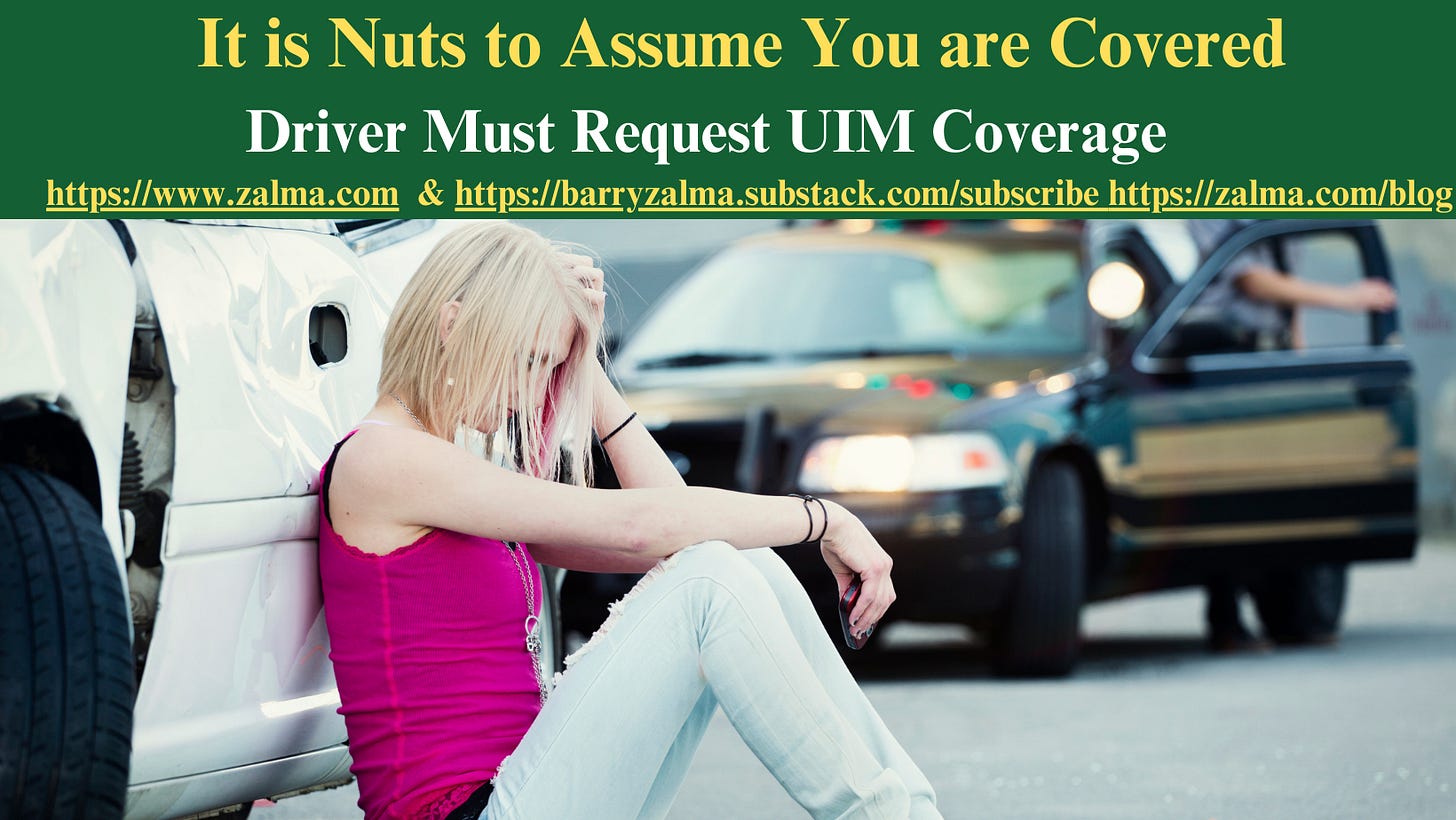Read full article at https://lnkd.in/ggKkFa7J, see the full video at https://lnkd.in/g7Fdj2kF and at https://lnkd.in/g5HS52JW and at https://zalma.com/blog plus more than 4750 posts.
Post 4748
Kimberly Rogers appealed from a judgment of the Fayette Circuit Court granting Lyft, Inc.’s motion for summary judgment, Allstate Insurance Company’s motion for summary judgment, and Erie Insurance Exchange’s motion for judgment on the pleadings. In Kimberly Rogers v. Erie Insurance Exchange; Allstate Insurance Company; and LYFT, Inc., No. 2023-CA-0447-MR, Court of Appeals of Kentucky (April 19, 2024) the Court of Appeals resolved the dispute.
FACTS
Kimberly Rogers was a driver for Lyft, Inc. (Lyft) and was involved in an automobile accident with another motor vehicle. Rogers apparently suffered substantial physical injuries. The driver of the other motor vehicle negligently caused the accident and was insured by State Farm Automobile Insurance Company (State Farm). State Farm paid Rogers the policy’s liability coverage limits. At the time of the accident, Rogers’ vehicle was insured by Erie Insurance Exchange (Erie), and Lyft carried motor vehicle insurance with Allstate Insurance Company (Allstate). Both Erie and Allstate denied Rogers’ claims for underinsured motorist (UIM) benefits.
Rogers sued Erie, Allstate, and Lyft hoping one would provide UIM coverage.
STATUTORY REQUIREMENTS
Lyft is required by 601 KAR [Kentucky Administrative Regulations] 1:113 § 3(1) to maintain primary automobile insurance that provides coverage both for a driver who is logged into the Lyft application and for drivers engaged in a prearranged ride. Lyft is also required by 601 KAR 1:113 § 3(2) to maintain liability insurance, PIP [Personal Injury Protection] coverage, UM [Uninsured Motorist] coverage and UIM coverage for drivers who are logged into the Lyft application, who are not engaged in a prearranged ride.
Allstate insures Lyft under a policy of insurance that Defendant Allstate represents only provides the coverage required by KRS § 281.655(12) as a prearranged ride liability policy, which Allstate contends applies only when Plaintiff was carrying persons for Defendant Lyft.
Defendant Erie insures Plaintiff under a policy which it contends excludes UIM coverage for all transportation network company activities, whether as part of a pre-trip liability policy or prearranged ride liability policy.
To the extent that Defendant Allstate is contractually obligated to provide UIM coverage to Lyft drivers engaged in Lyft operations in the Commonwealth of Kentucky, and to the extent that Plaintiff was engaged in Lyft operations in the Commonwealth of Kentucky, Defendant Allstate is required to provide UIM coverage to the Plaintiff in an amount of at least $50,000. To the extent that it is determined that Plaintiff was not engaged in Defendant Lyft’s operations at the time of the collision Erie is required to provide UIM coverage to Plaintiff, not to exceed the limits of Plaintiff’s policy with Defendant Erie.
ANALYSIS
The Court of Appeals rejected Rogers’ contention that an ambiguity exists as to the exception to the UIM exclusion contained in the policy. Under its plain terms, the exception is triggered only if the automobile was “identified for Business use as indicated on the ‘Declarations.'” Rogers seizes upon the language on the declaration page that identified the use of her vehicle as “To work 10-14.” However, “To work” is commonly utilized to indicate that the insured drives the motor vehicle to and from work. Rogers admitted that her vehicle was not rated for business use as required under the exception to the UIM exclusion. Accordingly, the Court of Appeals concluded that Rogers was not entitled to UIM coverage under her policy of insurance.
Rogers additionally asserted that public policy requires Lyft and/or Erie to provide UIM coverage. Generally, UIM exclusions in motor vehicle insurance policies do not offend the public policy of the Commonwealth of Kentucky. UIM coverage is only required insurance coverage when the insured requests such coverage. The insured simply may disclose the business use of her motor vehicle and request UIM coverage rated for such use. She did not.
In sum, the Court of Appeals concluded that the circuit court properly rendered summary judgment in favor of Lyft, Allstate, and Erie and the judgment of the Fayette Circuit Court was affirmed.
ZALMA OPINION
Insurance, much to the surprise of some, is just a contract. It must be interpreted as written. UM and UIM coverage is available in the State of Kentucky if the insured requests the coverage and provides the insurer with information concerning the risk taken. Using a vehicle for Lyft is akin to the operation of a taxi cab and is not akin to a person who drives to and from work. By not properly asking for the coverage and advising the insurer of the risk, Ms. Rogers had no UM/UIM coverage.
(c) 2024 Barry Zalma & ClaimSchool, Inc.
Please tell your friends and colleagues about this blog and the videos and let them subscribe to the blog and the videos.
Subscribe to my substack at https://barryzalma.substack.com/subscribe
Go to X @bzalma; Go to Newsbreak.com https://www.newsbreak.com/@c/1653419?s=01; Go to Barry Zalma videos at Rumble.com at https://rumble.com/c/c-262921; Go to Barry Zalma on YouTube- https://www.youtube.com/channel/UCysiZklEtxZsSF9DfC0Expg.
Go to the Insurance Claims Library – https://lnkd.in/gwEYk.
Please tell your friends and colleagues about this blog and the videos and let them subscribe to the blog and the videos.
Subscribe to my substack at https://lnkd.in/gmmzUVBy
Go to X @bzalma; Go to the Insurance Claims Library – https://lnkd.in/gwEYk.


















Share this post